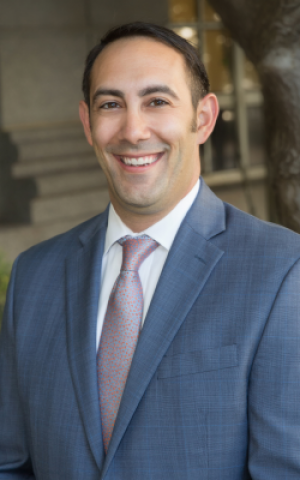American Jews Worried About Anti-Semitism
In a study that the AJC called “the largest and most comprehensive ever on the subject of antisemitism in America,” 84 percent said said anti-Semitism is on the rise in the U.S.
Dave Schechter is a veteran journalist whose career includes writing and producing reports from Israel and elsewhere in the Middle East.

If you have decided not to wear a kippah in public, or maybe covered it with a hat, or not worn a Star of David or chai symbol around your neck, or tucked them in your shirt so that they cannot be seen, you are not alone.
Nearly one-third of American Jews recently surveyed by the American Jewish Committee said that they “have avoided publicly wearing, carrying or displaying things that might help people identify them as Jews.” One-quarter said that they “avoid certain places, events, or situations at least some of the time out of concern for their safety or comfort as Jews.”
In a study that the AJC called “the largest and most comprehensive ever on the subject of antisemitism in America,” 88 percent of respondents said anti-Semitism is a problem in the United States today, with 38 percent calling it a very serious problem.
Asked whether anti-Semitism in the U.S. has increased over the past five years, 84 percent said “yes,” with 43 percent saying, “it has increased a lot.”
The survey results were released in the days before the first anniversary of the Oct. 27, 2018, massacre of 11 Shabbat morning worshippers at the Tree of Life synagogue in Pittsburgh. The interviews with 1,283 adults of Jewish religion or background were conducted from Sept. 11 to Oct. 6 by an independent research company.
Despite the concern they professed, the overwhelming majority of those surveyed responded that they had never been the target of an anti-Semitic physical attack (98 percent), had not been the target of an anti-Semitic remark in person, by mail, or by phone (77 percent), and had not been the target of an anti-Semitic remark online or through social media (80 percent). Only 5 percent said that they had avoided visiting Jewish institutions or participating in Jewish events because they did not feel safe there.

Dov Wilker, director of AJC’s regional office in Atlanta, noted that of those who did experience anti-Semitism, 75 percent said they did not report the incident, not to police or a Jewish organization, or by posting online. Additionally, the killings in Pittsburgh, the shootings at the Chabad Center in Poway, Calif., and other publicized incidents have had an impact. “Even if it doesn’t happen to us, we have a heightened sensitivity to what’s happening in our community, whether that’s in Atlanta or to Jews around the country,” Wilker said.
The views on anti-Semitism cut across denominational and political lines.
Among the Haredi (ultra-Orthodox), 84 percent said anti-Semitism “today is a very serious or somewhat of a problem,” as did 80 percent of Modern Orthodox, 91 percent of Conservative, 94 percent of Reform, 92 percent of Reconstructionist, and 87 percent of secular Jews.
By political affiliation, 93 percent of Democrats, 87 percent of independents, and 75 percent of Republicans said anti-Semitism is a problem.
As to the sources of anti-Semitism, 89 percent of the survey’s respondents identified the “extreme political right” as a threat, with 49 percent calling that group “a very serious threat.” The “extreme political left” was cited by 64 percent of the respondents, with 15 percent calling that group “a very serious threat.”
“Extremism in the name of Islam” was cited by 85 percent of respondents, with 27 percent calling it a “very serious threat.”
President Donald Trump’s “handling of the threat of anti-Semitism in America” was disapproved by 73 percent of respondents, compared with 24 percent who expressed approval. Broken down by political affiliation, 84 percent of Republicans approved of Trump’s response, 49 percent of them strongly. Among Democrats, 92 percent disapproved of Trump’s handling of the issue, 82 percent of them strongly disapproving.
The American Jews surveyed assigned greater responsibility to the Republican Party than the Democrats for the level of anti-Semitism in the U.S., by a considerable margin, although members of both parties found similar degrees of fault within their own ranks.
As to whether anti-Zionism – defined as “the belief that Israel should not exist” – is a form of anti-Semitism, 84 percent of respondents agreed.
Asked about the statement, “The U.S. government only supports Israel because of Jewish money,” 84 percent of those surveyed agreed.
On the question of dual loyalty, 73 percent believe that the statement “American Jews are more loyal to Israel than to America” is anti-Semitic.
Regarding the Boycott, Divestment and Sanctions movement against Israel, 35 percent viewed it as mostly anti-Semitic, while 47 percent said that it may not be anti-Semitic, but has anti-Semitic supporters.
As for the climate on the nation’s college campuses, 36 percent felt it to be more hostile than a year ago, while 41 percent said it was about the same, and 20 percent did not know.



comments